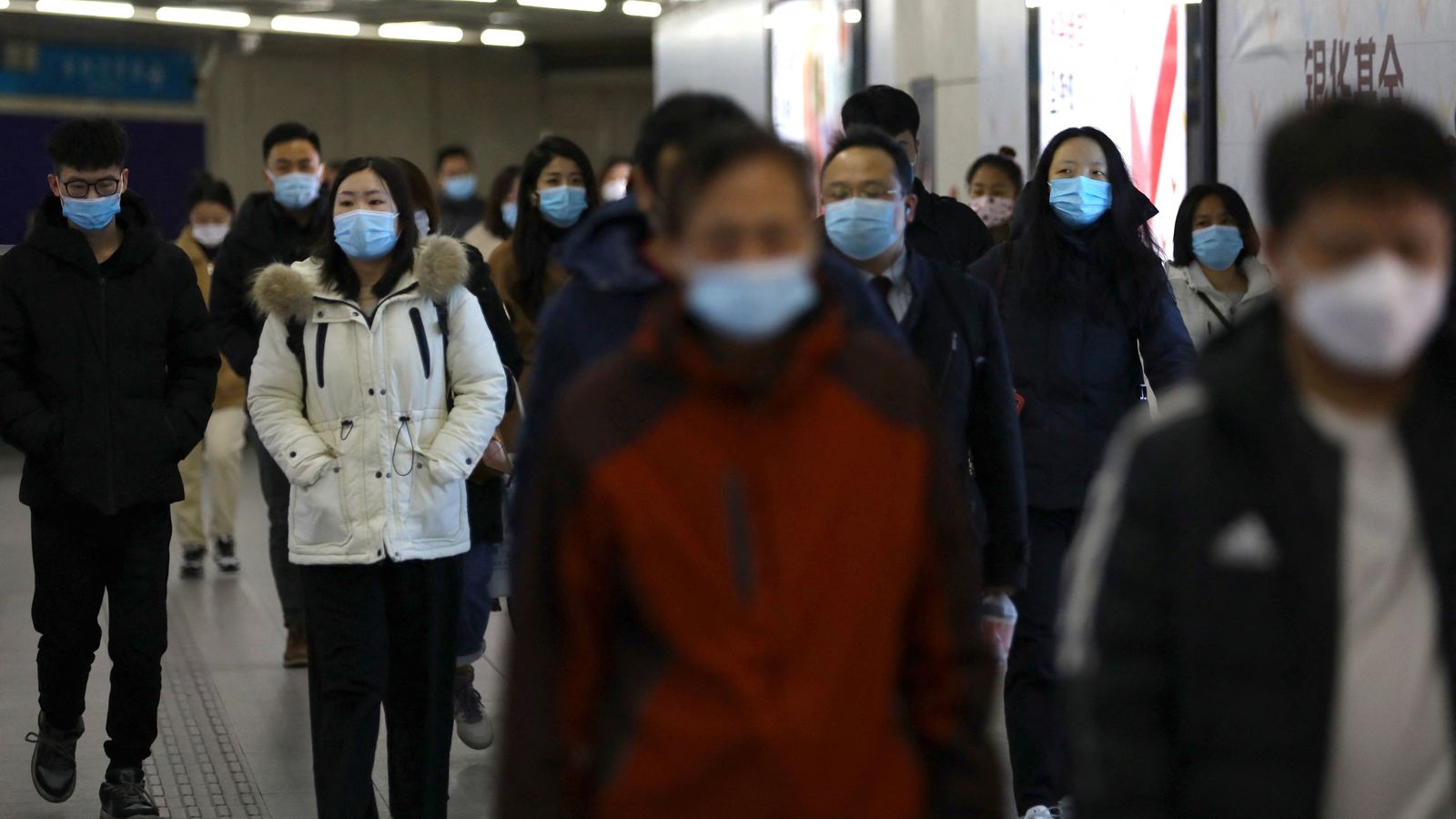China’s economy grew by 8.1% 2021 as it rebounded from a coronavirus-driven slump – but showed signs of stuttering as the year drew to a close.
Official figures showed the quarter-on-quarter pace of growth picked up a bit in the last three months of the year to 1.6% after a third quarter when it expanded by just 0.7%.
But that left GDP in the October-December period just 4% up on the same time a year earlier, slowing from 4.9% in July-September – down from 7.9% in the second quarter and the breakneck 18.3% pace seen at the start of the year.
Weak consumption and a property downturn are weighing on the world’s second biggest economy, which has been enforcing strict clampdowns to try to restrict sporadic new COVID-19 outbreaks.
The figures, which showed retail sales fell by 0.2% in December, came as several Chinese cities went on high alert ahead of the lunar new year holiday travel season as the Omicron variant reached more areas including Beijing.
There was also a slowdown in investment in factories and real estate as developers cancelled or postponed building plans.
As the GDP figures were published, the country’s central bank moved to cushion the economy by cutting a key lending rate for medium term loans.
COVID-19: Credit Suisse chairman Antonio Horta-Osorio resigns nine months into role after bank probe finds he breached quarantine rules
Ex-Farfetch executive Robb among contenders to become ASOS CEO
Lord Myners dies: Tributes paid to former Labour minister who was brought in to tackle 2008 financial crash
China suffered a big slump at the start of 2020 as COVID-19 first emerged but recovered more quickly than other economies to post growth of 2.2% for the year as a whole.
Growth accelerated in 2021 helped by robust exports thanks to revived consumer demand in the rest of the world.
Please use Chrome browser for a more accessible video player
But forecasters have warned that weakness towards the end of the year will persist into 2022 as it faces new outbreaks of the virus and a clampdown on high debt levels in the property sector – which has prompted a slump in a construction industry supporting millions of jobs.
That weakness has potential global repercussions, depressing Chinese demand for steel, consumer goods and other imports.
Tommy Wu, lead China economist at Oxford Economics, said: “Downward pressure on growth will persist in 2022.
“We expect the property downturn to extend into the first half of this year before real estate activity recovers somewhat in the second half.
“In addition, we think that China is unlikely to relax its zero-tolerance approach to COVID until late-2022 at the earliest.
“As a result, we project disappointing consumption growth this year.”






















